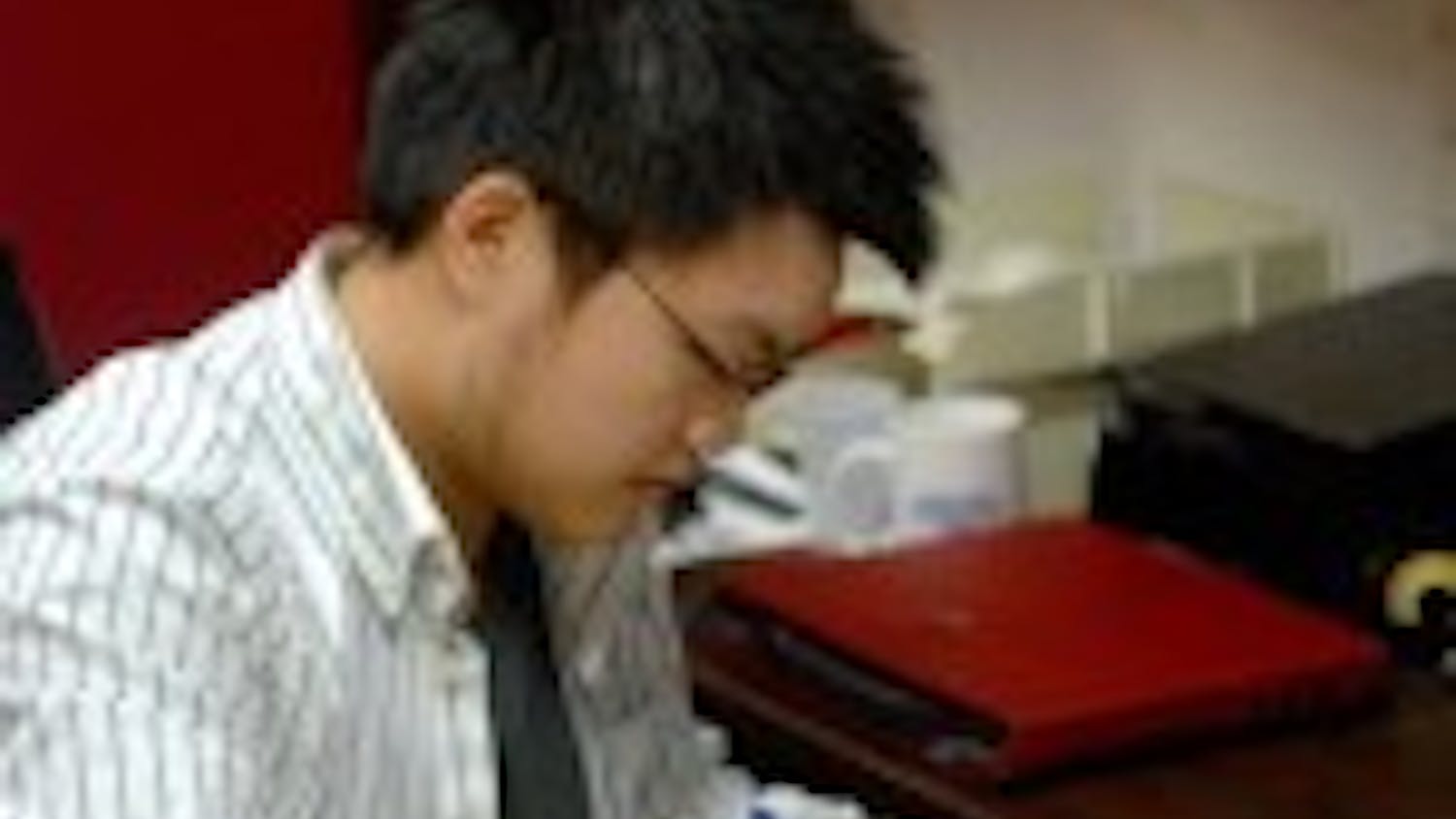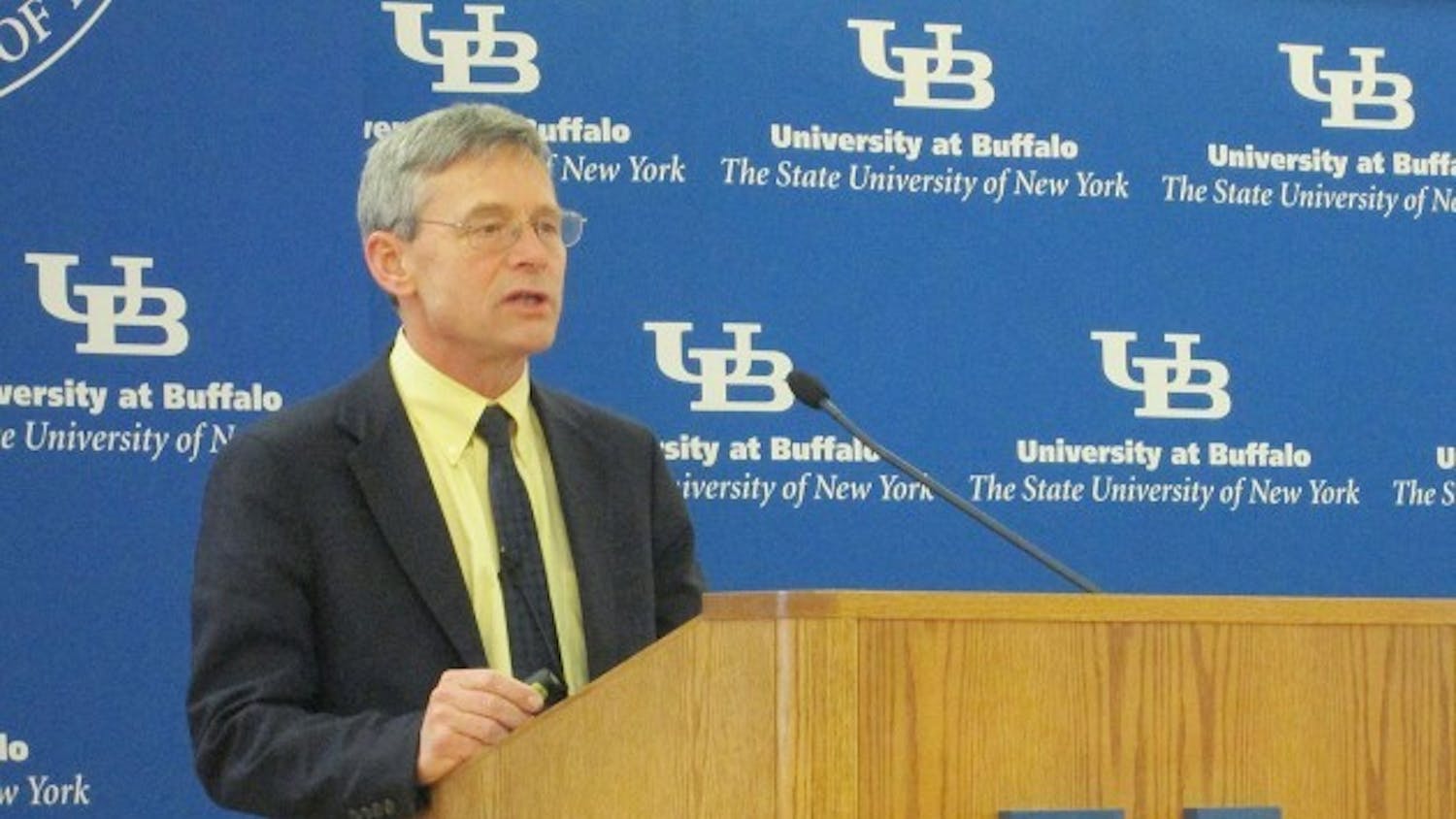For his highly influential work on the forefront of a budding new discipline of sociology, Mark Gottdiener, Ph.D., professor of sociology, was presented with one of the most distinguished awards offered in his field - the Robert and Helen Lynd Lifetime Achievement Award.
Gottdiener was given the award at a ceremony of the American Sociology Association in Atlanta in August.
"I am extremely grateful because it's a very prestigious award," Gottdiener said. "At the award ceremony I made sure to mention how happy I was to receive it. It's given only once a year to people who have had outstanding careers."
Gottdiener's most significant contributions to the field of sociology have been through his work on a novel approach to the subject, an approach that he played a major role in establishing.
Known as the "new urban sociology," Gottdiener's research and methods have taken into account a number of very important factors of urban development that had been all but completely overlooked in the past.
"The previous approaches [to urban sociology] were very conservative in their outlook," Gottdiener said. "They ignored the important issues of race, class, and government intervention, and how all of these have an impact on urban areas. We pay attention to those factors."
According to Gottdiener, perhaps the most distinguishing feature of the "new urban sociology" is the consideration given to the spatial layout of cities themselves, an idea he credits to the influential French sociologist and philosopher Henri Lefebvre.
"In the new urban sociology, we pay attention to the factors of spatial segregation and the environment, as well as racial segregation," Gottdiener said "The quality of life and the places themselves, those are the most important factors, and previous approaches ignored that. They just didn't put it together in a cohesive framework that the new urban sociology incorporates."
Gottdiener's original perspective of the field of sociology has its roots in a number of important questions he raised early in his life about his first hand experience with urban problems.
"I grew up in an inner city area called the South Bronx [and] it had a lot of social problems," Gottdiener said. "I was concerned about the negative effect of race and class on people living there."
While working on his Ph.D. at Stony Brook University, Gottdiener was surprised to see the same social problems of the inner city area in his hometown being reproduced in the rapidly developing region of Long Island. These observations led Gottdiener to speculate that perhaps similar, but often ignored, factors were present in each environment, responsible for their comparable social problems.
"People in the U.S. have some conception that if you move to the suburbs you escape the problems of the city, [but that's not the case]," Gottdiener said. "It's the same system that's operating in both of them."
Gottdiener has also put his critical eye to use on the local level, making note of a number of problems present in the structure of the UB school system. In particular, Gottdiener feels the issue of overcrowded undergraduate classes and the compromises it demands are in need of attention and action.
"I find that the university itself can be very harsh for undergraduates who come here," Gottdiener said. "I feel that undergrads are shortchanged and I really try to work hard in my classes in order to give students the most up-to-date information."
In addition to his teaching load, Gottdiener is currently collaborating on a research project comparing the cities of Las Vegas, Dubai and Macau in hopes of explaining their popularity as gambling and tourist destinations.





